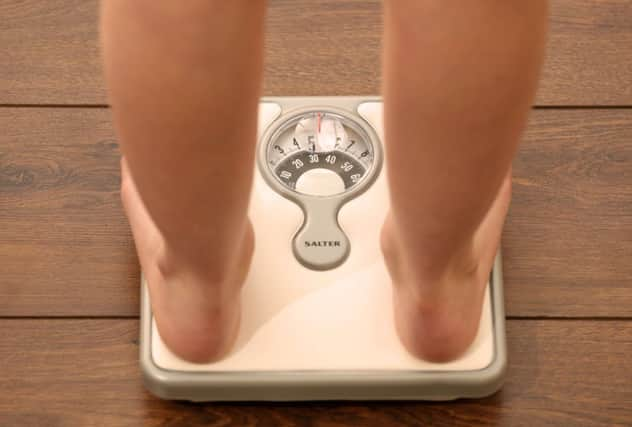Fifth of 11-year-old boys now classed as obese


The fifth Millennium Cohort Study (MCS) of more than 13,000 children born between 2000 and 2002, published by the Institute of Education, said obesity affected mostly boys.
Dr Roxanne Connelly, who analysed the data, said there is a “clear link” between children’s weight at age 11 and their parents’ level of education.
Advertisement
Hide AdAdvertisement
Hide AdTwenty-five per cent of boys and girls whose parents had no educational qualifications were obese compared to 15 per cent of children who had at least one parent with a degree. The data also found that children with overweight mothers were more likely to be overweight, suggesting that children are copying their behaviour.
Dr Connelly said the findings advanced “our understanding of the obesity epidemic”.
CONNECT WITH THE SCOTSMAN
• Subscribe to our daily newsletter (requires registration) and get the latest news, sport and business headlines delivered to your inbox every morning
She said: “One of the key issues we now need to focus on is why there was such a sharp increase in overweight and obesity among the MCS children between ages seven and 11. The number who were either overweight or obese rose from 25 per cent at age seven to 35 per cent at age 11. One thing we did find was that a lot of children who were overweight at age seven were slowly becoming obese so it could be a creeping problem. Only a small number of overweight children aged seven moved down to a healthy weight.”
Children who are overweight or obese face an increased risk of health problems, including asthma, cardiovascular disease and type 2 diabetes. Obesity is also associated with low self-esteem and depression.
Those obese at 11 were less likely than other children to be “completely happy” with the way they looked, the researchers found. They were also slightly more likely to say they were “not happy at all” with their appearance.
The study has so far collected data from the 13,287 boys and girls and their families at the ages of nine months and three, five, seven and 11 years to analyse their health, schooling and development as well as their parents’ employment and education. The latest survey of 11-year-olds was carried out by Ipsos MORI between January 2012 and February 2013.
Overall, almost half (49 per cent) of the millennium children were classified as overweight or obese in at least one of the four most recent surveys.
Advertisement
Hide AdAdvertisement
Hide AdDr Ann Hoskins, director of children, young people and families at Public Health England, said: “It is deeply concerning that there is a virtual doubling of obesity rates from reception to the end of primary school, as also shown in our own data, and that it is particularly bad for children from low income households.
“Parents and carers can help their children maintain a healthy weight by following a balanced diet, ensuring portion sizes are not too large and avoiding sugary drinks and sugary or fatty snacks. Children also need a minimum of 60 minutes of moderate to vigorous exercise each day, which can be achieved in one session or through shorter bursts of 10 minute activity.
Tam Fry, chairman of the Child Growth Foundation, said traditional games and exercises should be reintroduced to combat the obesity epidemic, adding: “Obesity is costing the country £47 billion a year which is a horrendous figure. I’m not saying we have to be drastic but there has to be some thinking outside-of-the-box.”
SCOTSMAN TABLET AND IPHONE APPS